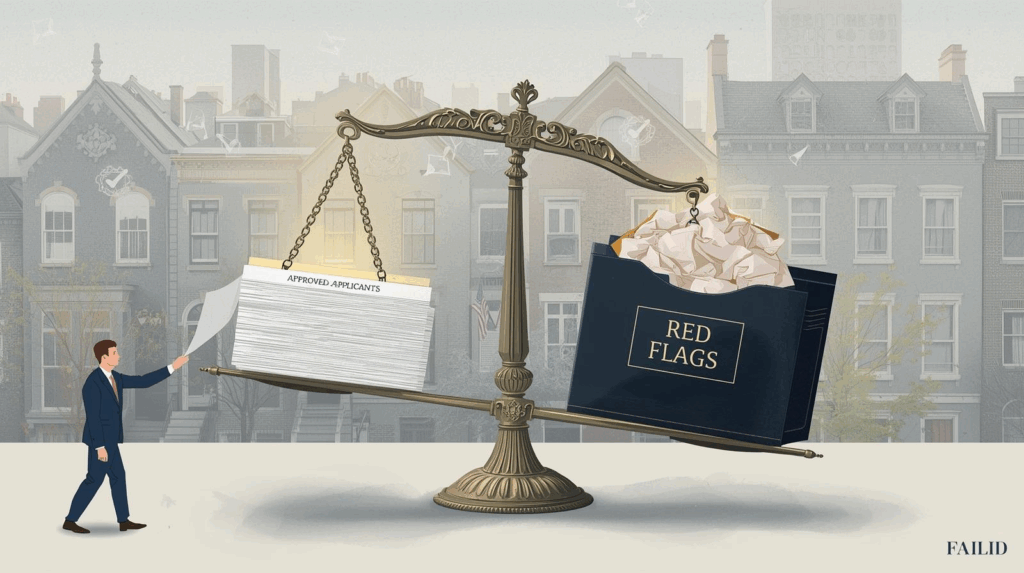When it comes to managing a rental in Baltimore, nothing is more important than choosing the right tenant. But here’s the catch: one misstep during screening — like asking the wrong question or denying someone unfairly — can land you in legal trouble.
Landlords in Maryland must follow federal Fair Housing laws, state-specific tenant protections, and local rules enforced by Baltimore City. Failing to comply can result in lawsuits, fines, and even rental license issues.
This guide explains how to screen tenants the right way — minimizing risk and maximizing peace of mind.
📊 Learn more about Maryland Fair Housing Laws Here
Step 1: Know the Laws (Federal, State, Local)
Before you even post your rental, make sure you understand the legal landscape:
- Federal Fair Housing Act protects tenants from discrimination based on race, religion, sex, national origin, familial status, and disability.
- Maryland Law adds additional protections such as sexual orientation and marital status.
- Baltimore City has its own rental regulations, including registration and inspection compliance.
🚫 You cannot: – Ask about religion, immigration status, or arrest records – Deny based on source of income (like housing vouchers)
✅ You can: – Require income minimums (as long as vouchers are included) – Conduct background checks (with permission) – Check credit and rental history
📖 Read the Fair Housing guidelines from HUD
Step 2: Create a Consistent Screening Criteria
Fair housing laws require consistency. That means you need standard criteria that you apply to every applicant, no matter their background.
Recommended screening criteria: – Monthly income at least 3x rent (or voucher equivalent) – No evictions in the past 3–5 years – Minimum credit score (e.g., 580+) – No violent felonies or major property damage
📄 Pro Tip: Put your screening criteria in writing and include it in your rental listing.
📚 Top 10 Mistakes Baltimore Landlords Make When Listing Rentals Online
Step 3: Use a Rental Application Form
Every tenant should complete a full application. This ensures you collect consistent data and have documentation if disputes arise.
Your application should request: – Full legal name – Contact information – Employment & income details – Landlord references – Consent to background & credit checks
Step 4: Verify Income and Employment
Verify that tenants can afford your rent.
✅ Acceptable proof: – Recent pay stubs (last 30 days) – Bank statements – Offer letters – Housing voucher award letters
Step 5: Run Credit and Background Checks Legally
You must obtain written permission from the applicant before pulling credit or criminal records. Use a reputable tenant screening service.
Things to review: – Credit score & payment history – Open debt or collections – Criminal background (within fair housing compliance) – Eviction history
🚨 Do not deny based on arrest records or offenses unrelated to tenancy (per HUD guidelines).
Step 6: Document Your Decisions
To protect yourself legally, document your screening process: – Keep records of applications and supporting documents – Note reasons for approval or denial (based on your written criteria) – Send written denial notices if rejecting an applicant
📧 Always follow up with a clear reason for denial — ideally using an Adverse Action Notice.
When in Doubt, Let Pros Handle It
If all this sounds like a lot, that’s because it is. Screening legally in Baltimore isn’t just about protecting your property — it’s about protecting your business from lawsuits.
At Yes We Rent Houses, we specialize in tenant screening in Baltimore, handling every part of the process: – Legal screening compliance – Background & credit checks – Income & voucher verification – Applicant communication
📘 Click here to learn how our tenant placement works
✅ Ready to Find a Qualified Tenant — Legally?
Don’t risk a bad tenant — or a bad lawsuit. Our Baltimore-based team knows how to screen tenants legally, fairly, and fast.






